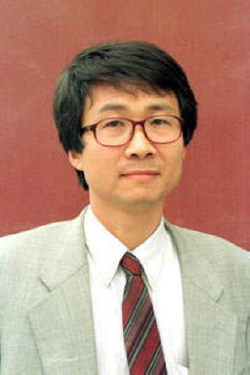 |
|
Gang Tae-ho
|
Gang Tae-ho, Senior reporter for the Hankyoreh
In her memoirs "Madam Secretary," Madeleine Albright says that she believed she helped to open up the diplomatic channels between North Korea the Bush administration would eventually turn to. Her successor, Colin Powell, said that during the transfer of power from the Clinton to Bush administrations in the United States, he had expected to continue with North Korea where she had left off, but that he and the rest of the world soon realized that would not be the case.
Albright was the highest ranking woman in the Clinton Administration’s second term. The diplomatic channels she is talking about having opened were the missile negotiations with North Korea held between 2000 and early 2001. Indeed, immediately after he was sworn in as the new secretary of state, Powell said at a press conference on March 3, 2001 that he would be beginning where Clinton’s people left off. He said there were things left on the table that he would be considering. He had said similar things at his confirmation hearing. He even went so far as to say that the State Department would engage North Korea based on what the Clinton administration had done, the day before South Korean president Kim Dae-jung and U.S. president George W. Bush held their first summit.
During the course of the summit, Bush got frank and said he doubted Kim Jong-il. Kim Dae-jung said they had a "frank and open" discussion, a diplomatic synonym for "difference of opinion." Following the meeting between Kim and Bush, Powell started saying something different. He declared that the missile talks would not be resuming any time soon. The American media started suggesting there was disagreement within the Bush administration about what approach to take towards Pyongyang, but put simply, Powell had started getting shut out.
I mention Albright because what she said five years ago holds truth again today. The North Korean missile crisis is a crisis underway, neither imminent nor over. The Bush administration talks about a diplomatic resolution. It makes Clinton’s people look like hardliners, because former Clinton defense secretary William Perry wants to strike the missile site preemptively, and Albright says the use of military force should not be taken off the table. If you look at it carefully, what the Bush administration wants to do is to use diplomatic pressure to isolate North Korea even further. People from the Clinton administration, on the other hand, are essentially saying that North Korean missiles cannot be stopped with a missile defense (MD) program pushed by Bush if the U.S. is also not simultaneously engaging in negotiations over the issue.
It reminds you of what Albright said at the National Press Club on November 2, 2000. She said it would be "truly irresponsible" if the U.S. failed to use the historical opportunity to reduce the threat of North Korea’s missiles to the U.S. and its allies. The "historical opportunity" she was talking about referred to her trip to Pyongyang. A week earlier, from October 22 to October 24, she had indeed been on a historic visit to Pyongyang, where she met National Defense Commission chairman Kim Jong-il and talked for about six hours. The two "confirmed our common interest in peace." It only came to be known later, but just before the U.S. presidential election in November, that North Korea had agreed to freezing and ultimately abandoning its middle and long-range missile program. Differences remained, but Kim Jong-il had invited Clinton to Pyongyang to make things final. Bush’s staff, then the president-elect, prevented Clinton from going.
Should the Bush administration not reclaim those five-and-a-half years and again begin what the Clinton administration was unable to finish?





